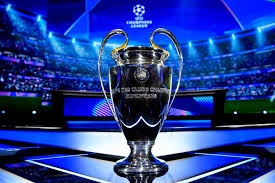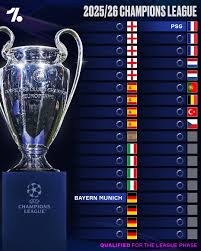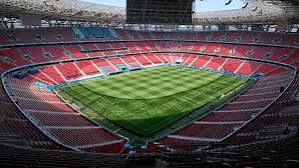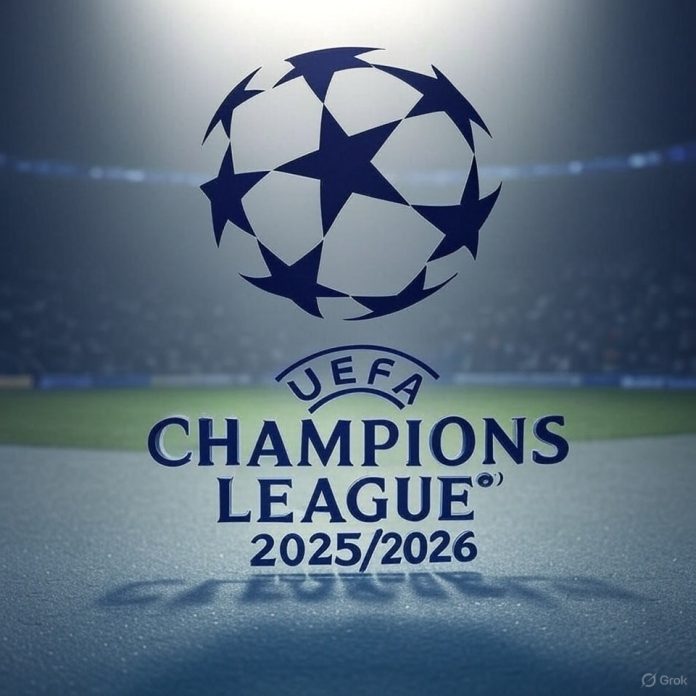New UEFA Champions League Knockout Format 2025/26: Wetin E Mean for Clubs

Di UEFA Champions League don bring fresh breeze to its knockout format starting from di 2025/26 season, and e go shake things up for di 36 clubs wey dey compete. Dis na di second year of di new league phase format wey replace di old group system, and now di knockout rounds dey get new twist wey go affect how teams strategize and perform. Make we break am down and see wetin e mean for di participating clubs.
Di big change na how home advantage dey work for di knockout stages. Before now, from di quarter-finals, dem dey use random draw to pick which team go play second leg at home, no matter how dem rank for di league phase.
But from 2025/26, UEFA don say say di teams wey finish high for di league phase—1st to 4th—go get home advantage for di second leg of di round of 16 and quarter-finals. Even better, UEFA talk say di top two teams go enjoy dis privilege for di semi-finals if dem reach there. Dis na big shift wey dey reward consistency and good performance early for di season.

One wild addition na di “stolen” home advantage rule. If a lower-ranked team beat a higher-ranked one and knock dem out, dem go inherit dat home advantage for di next round. For example, if 15th-placed team beat 2nd-placed team, dem go take over di 2nd-place home rights for di next stage. Dis one dey create extra motivation for underdogs, but e fit also confuse di bracket and make planning hard for big clubs wey dey used to control.
Di UEFA knockout format still dey follow two-legged ties from round of 16 to semi-finals, wit one-off final at a neutral venue—Puskás Aréna for Budapest on May 30, 2026.

Di top eight teams for di league phase go straight to round of 16, while teams from 9th to 24th go fight for eight more spots through play-offs. Teams below 24th don waka comot from Europe dat season. Dis setup dey make every league phase match count, and di extra pressure fit test di stamina of clubs like Manchester City or Real Madrid wey dey always dey top.
For di big clubs, dis changes be good news. Teams like Bayern Munich, Liverpool, and PSG wey fit finish top four go benefit from playing second legs at home, giving dem edge wit dia fans and familiar pitch. E go also boost dia confidence knowing say dem get better route to final if dem maintain strong league phase. But di “stolen” advantage rule fit throw spanner for dia work—imagine PSG losing to a mid-table team and watching dem take over dia home rights! Dem go need sharp tactics to avoid early upset.

For mid-tier clubs like Atalanta or Newcastle, e be double-edged sword. Finishing 3rd or 4th give dem home advantage for round of 16 and quarters, but no guarantee for semi-finals unless dem beat a top team and “steal” dat right. Dis mean say dem go need to peak early and stay sharp, or else dem fit fall to play-offs wahala. Di play-off stage fit be dia chance to shine, but e also mean more games and risk of burnout.
Smaller clubs like Slavia Praha or Dinamo Zagreb dey face tough road. Dem go likely finish low for league phase, so play-offs be dia only hope to reach round of 16. But wit no drop to Europa League, one slip and dem don waka comot. Di extra matches and tight schedule fit stretch dia small squad and budget, making survival harder.
Di calendar shift also matter. Wit league phase stretching to January and knockouts starting February, players go face more games during busy season. Clubs go need top fitness management to avoid injury, especially for teams like Chelsea wey dey juggle domestic and European fronts. Fans go enjoy more action, but e fit tire stars before international breaks.
Overall, dis new UEFA knockout format dey reward early form but add unpredictability. Big clubs go dominate if dem stay focused, while mid and small teams go need smart play to cash out. As di 2025/26 season dey approach, e go be war of strategy, stamina, and surprise!


